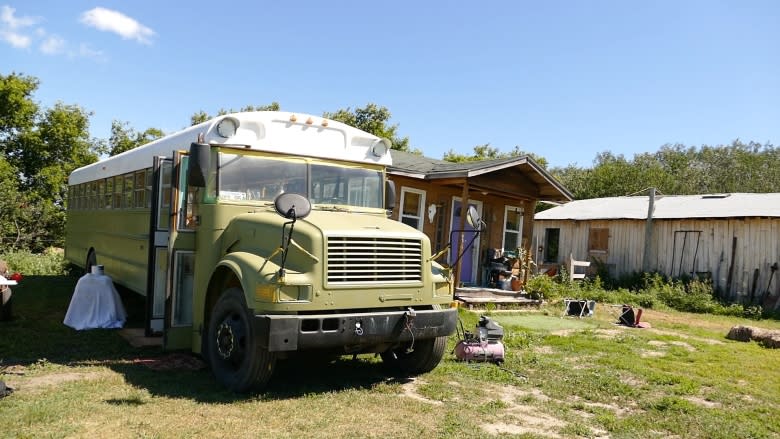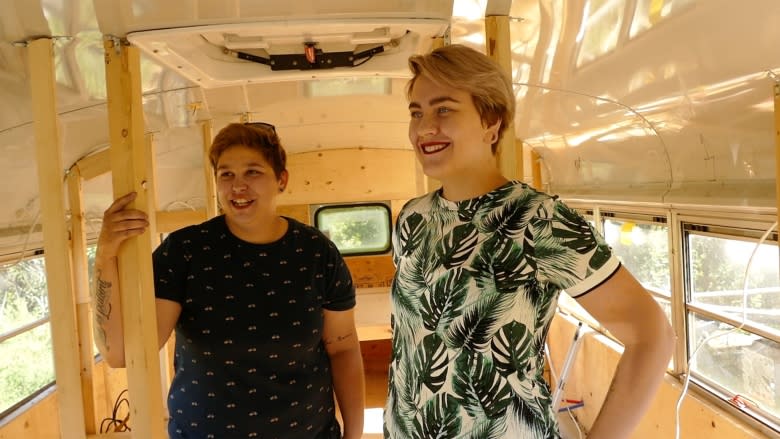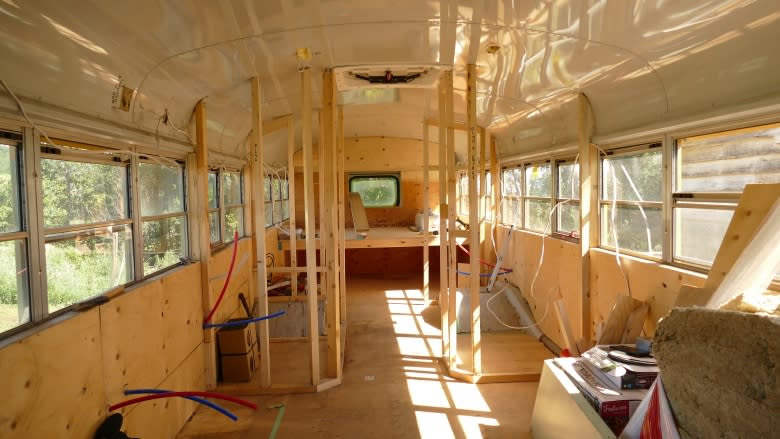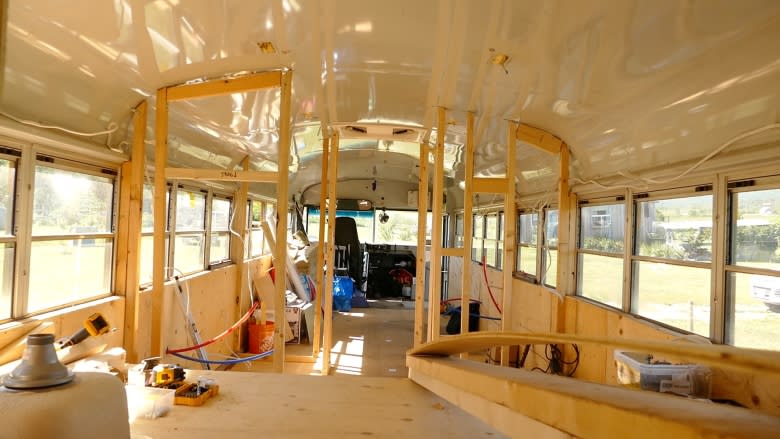All aboard: Manitoba couple converting used school bus into eco-friendly, affordable home
For more than a decade, it hauled students to and from school, field trips and school sports, but now a 2001 International school bus will embark on a new journey to become home for a Manitoba couple eager to escape the cycle of rent and mortgages.
Charlie Martin and Keri West bought the bus on a whim this spring, drawn by the prospect of affordable living and a mortgage-free, rent-free life, as well as the lure of living mobile.
"I thought that it would be really cool to live in a bus and live mobile," said Martin, a designer with her own branding agency, Thirteenth and West. "With the work that I do, I can do a lot of mobile stuff."
"We both definitely wanted to be debt-free," she said, adding that the couple had seen photos on Pinterest and Instagram of the "skoolie" movement, which is what the conversions have been dubbed as they've gained momentum in the United States.
The couple took out a loan and drove four hours from their home in Brandon, Man., to Regina and bought the used bus for $5,500.
Neither had driven a bus before — but they came back with one that measures more than 40 feet long, far larger than the Mini Cooper car they currently drive.
Now living on a farm near Rapid City, Man., a town about 210 kilometres northwest of Winnipeg, near Brandon, the couple commutes to work in the city and has been busy planning, framing and painting their new 250-square-foot home — nicknamed the pea pod for its green colour — while living in a 200-square-foot cabin-like home.
"It's definitely a lot roomier than we thought it was going to be," said Martin.
The bathroom has been framed already, with plans for a small shower, a vanity and a composting toilet on the driver's side over the two wheel wells.
At the back, there's storage space for batteries powered by solar panels on the roof, as well as a holding tank for water and the bedroom, which the couple will share with their two dogs and two cats.
The front of the bus will house a small kitchen, a stove for heat and living space. Once complete, the bus can be registered as a mobile home.
Go inside the school bus being converted into a home on wheels:
They hope to spend between $15,000 and $17,000 total by the time they finish renovating the bus.
"It's definitely a huge movement right now and from looking at those images [online], it helped us plan for the most space," said Martin. "Mobility is the biggest thing. I'm a designer ... and I really wanted to be able to do that anywhere."
"And see the world at the same time … without a mortgage," said West, who was initially nervous about leaving the familiar sights and sounds of city life.
Downsizing
One of the first things the couple had to do was downsize.
"We definitely had to downsize and move to a smaller place," said Martin. "I think it's like camping."
"You've got to really like the other person, I think," said West. "I think we're closer now being in the smaller [home]. It just feels homier."
Downsizing has also taught them to be more eco-friendly and watch the amount of trash they produce.
"We're tying to be better about that now, about the waste we produce," said West. "You have to figure out more eco ways to minimize that and not have a pile of garbage laying around."
They plan to add extra insulation so the couple and their bus can withstand the harsh Manitoba winters.
"I think Keri definitely had a different idea of progress," said Martin, with a smile. "She's like 'Oh, we've come so far. Look at all we've done,' and I'm like, 'I want to paint.' "
West and Martin hope to complete their bus this fall and anticipate christening it by going on a few road trips.
"We definitely want to travel," said Martin. "Part of the motivation is to travel .… A lot of the story is we're mobile, we live tiny and we're eco."
They're both excited their dream is slowly becoming reality.
"We're actually doing it. We're going to be living out of it," said Martin. "It's a weird feeling."





